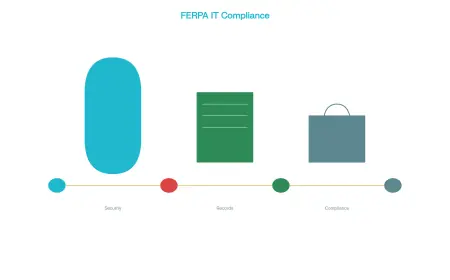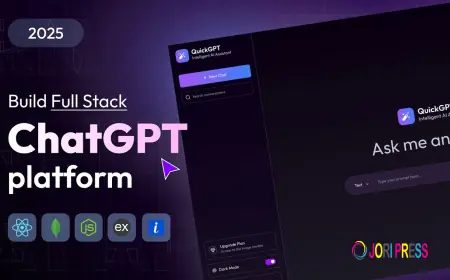Why Every Modern Business Needs a Generative AI Voice Bot Strategy to Stay Competitive in the AI-Driven Era
Discover why a generative AI voice bot strategy is essential for modern businesses to thrive in the AI-driven era.

We’re officially living in the AI-driven era, where intelligent systems are transforming the way businesses operate, communicate, and deliver value. As customer expectations skyrocket and traditional support models struggle to keep pace, Generative AI Voice Bots have emerged as one of the most disruptive and impactful technologies of the decade.
These next-generation voice bots go far beyond the basic scripted responses of legacy IVR systems. Instead, they leverage powerful language models capable of holding natural conversations, understanding sentiment, adapting in real time, and even solving complex queries autonomously.
As of 2025, having a Generative AI Voice Bot strategy is no longer a nice-to-have—it’s a competitive necessity. In this blog, we’ll explore why forward-thinking businesses across industries are embracing voice AI and what it takes to develop a winning strategy that future-proofs customer experiences, operations, and growth.
The AI-Driven Era: A Business Transformation
Artificial intelligence is no longer futuristic—it’s embedded in everything from supply chain logistics and fraud detection to product recommendations and voice search. But nowhere is AI’s impact more profound than in customer engagement.
Modern consumers expect instant, personalized, and seamless support across channels. Long wait times, robotic menus, and disconnected handoffs don’t cut it anymore. To meet these demands at scale and at speed, businesses must turn to Generative AI voice technology.
What Makes Generative AI Voice Bots So Powerful?
Unlike traditional bots that follow scripted decision trees, generative AI voice bots use large language models (LLMs) like GPT-4 or similar to:
-
Understand natural language, not just keywords
-
Interpret emotions and tone of voice
-
Generate fluid, human-like responses
-
Adapt dynamically to the conversation flow
-
Handle complex, multi-turn interactions
-
Integrate with business systems (CRM, ERP, ticketing) to personalize responses
The result? A virtual voice agent that feels less like a machine and more like a trained, empathetic human assistant.
Why Your Business Needs a Generative AI Voice Bot Strategy
Let’s break down the top reasons every modern business must adopt this technology to remain competitive in the AI-first landscape.
1. Customers Expect Instant, 24/7 Support
Today’s consumers are not willing to wait. Whether it’s a late-night order issue or a last-minute travel change, they demand real-time assistance—on their terms and in their language.
Generative AI voice bots offer:
-
24/7 availability without human fatigue
-
Instant answers to common and complex questions
-
Multilingual support across time zones
-
Faster issue resolution during peak hours
By deploying AI voice agents, businesses can deliver round-the-clock service and eliminate the frustration of long wait times or missed opportunities.
2. Operational Costs Are Rising—But AI Offers a Scalable Solution
Hiring, training, and retaining human agents is expensive. Contact center costs balloon with scale, especially when handling global operations.
With voice AI, businesses can:
-
Automate repetitive Tier-1 and Tier-2 queries
-
Handle thousands of calls simultaneously
-
Reduce agent workload and improve productivity
-
Cut infrastructure and staffing expenses
Investing in generative AI voice bots enables scalable, cost-effective growth without compromising on service quality.
3. Personalization Is the New Standard
Generic interactions don’t work anymore. Today’s customers expect businesses to know their history, preferences, and even anticipate their needs.
Generative AI voice bots can:
-
Access CRM data in real time
-
Personalize conversations based on user behavior
-
Tailor responses and offers dynamically
-
Remember past interactions for seamless follow-up
This level of personalization drives better customer retention, increased loyalty, and higher lifetime value.
4. Consistency Across Channels Is Critical
Omnichannel is no longer a buzzword—it’s a requirement. Customers expect consistent, high-quality experiences whether they’re calling your hotline, speaking to a kiosk, or interacting with a smart device.
Generative AI voice bots work across:
-
Phone support lines
-
Mobile and desktop apps
-
Smart speakers and voice assistants
-
In-store kiosks and devices
By offering a unified voice experience across channels, businesses create a coherent and professional brand image.
5. Data-Driven Insights Drive Continuous Improvement
Every interaction with an AI voice bot generates data. This information can be used to uncover trends, identify pain points, and optimize your customer journey.
Analytics from voice bots offer:
-
Sentiment analysis across conversations
-
Identification of recurring issues
-
Metrics like first-call resolution, handle time, and drop-off points
-
Insights into customer satisfaction and agent performance
These data-driven insights help businesses refine products, train staff better, and continuously enhance service delivery.
6. AI Empathy: Understanding Emotions in Real-Time
Thanks to advanced sentiment and voice analysis, AI voice bots can now recognize emotions such as stress, urgency, or confusion.
This allows them to:
-
Adjust tone and pacing accordingly
-
De-escalate frustrated customers
-
Escalate sensitive issues to human agents
-
Deliver more empathetic and satisfying experiences
Emotional intelligence in AI is closing the empathy gap that once made automation feel cold and impersonal.
7. Faster Time-to-Resolution Equals Happier Customers
With access to databases, FAQs, and knowledge bases, generative AI voice bots resolve issues in seconds rather than minutes.
This results in:
-
Lower average handling times (AHT)
-
Fewer callbacks and follow-ups
-
Reduced queue lengths
-
Better SLA compliance
Speed is a key driver of customer satisfaction, and AI delivers it consistently.
8. Multilingual and Multicultural Support Made Easy
Globalization brings language diversity. Generative AI voice bots break down barriers by offering real-time, fluent, and culturally aware communication in dozens of languages.
Benefits include:
-
Reaching underserved demographics
-
Expanding into new markets without hiring multilingual agents
-
Enhancing inclusivity and accessibility
Voice AI democratizes support, ensuring every customer feels heard and valued.
9. Empowering Human Agents Through Collaboration
AI isn’t here to replace humans—it’s here to enhance them. A well-designed voice bot strategy includes smart escalation workflows and AI co-pilot features that assist human agents behind the scenes.
How it helps:
-
AI handles FAQs, freeing agents for complex issues
-
Real-time suggestions during live calls
-
Auto-generated call summaries and notes
-
Improved agent morale and lower burnout
This hybrid model leads to higher efficiency and better outcomes for both customers and employees.
10. Competitive Advantage in a Crowded Marketplace
In saturated industries, customer experience is the true differentiator. Businesses that implement intelligent voice strategies stay ahead by delivering superior service—faster, cheaper, and smarter.
A generative AI voice bot strategy gives you:
-
A tech-forward brand reputation
-
Better customer loyalty and reviews
-
Higher retention and lower churn
-
The agility to evolve with customer demands
Early adopters will dominate the market, while latecomers struggle to catch up.
How to Build a Successful Generative AI Voice Bot Strategy
Creating a winning strategy involves more than just picking a vendor. Here are key steps to guide your journey:
1. Define Your Use Cases
Start small with high-volume, low-complexity tasks like FAQs, order tracking, or appointment scheduling.
2. Select the Right Platform
Look for platforms that offer LLM-powered voice capabilities, integration options, compliance support, and analytics.
3. Integrate with Core Systems
Connect the bot with your CRM, ticketing, and backend systems to enable personalization and data access.
4. Set Guardrails and Escalation Paths
Ensure smooth handoffs to humans and implement controls to avoid misinformation or AI hallucination.
5. Monitor and Optimize Continuously
Use insights and customer feedback to refine scripts, responses, and workflows over time.
Final Thoughts: The Time to Act Is Now
Generative AI voice bot are not just the future of customer support—they are the present. Businesses that recognize this shift and develop a proactive strategy today will reap the rewards of increased efficiency, enhanced satisfaction, and long-term competitiveness.
The era of passive customer service is over. In the AI-driven world, your brand needs to speak intelligently, empathetically, and instantly—across every channel and language.
What's Your Reaction?
 Like
0
Like
0
 Dislike
0
Dislike
0
 Love
0
Love
0
 Funny
0
Funny
0
 Angry
0
Angry
0
 Sad
0
Sad
0
 Wow
0
Wow
0



















































